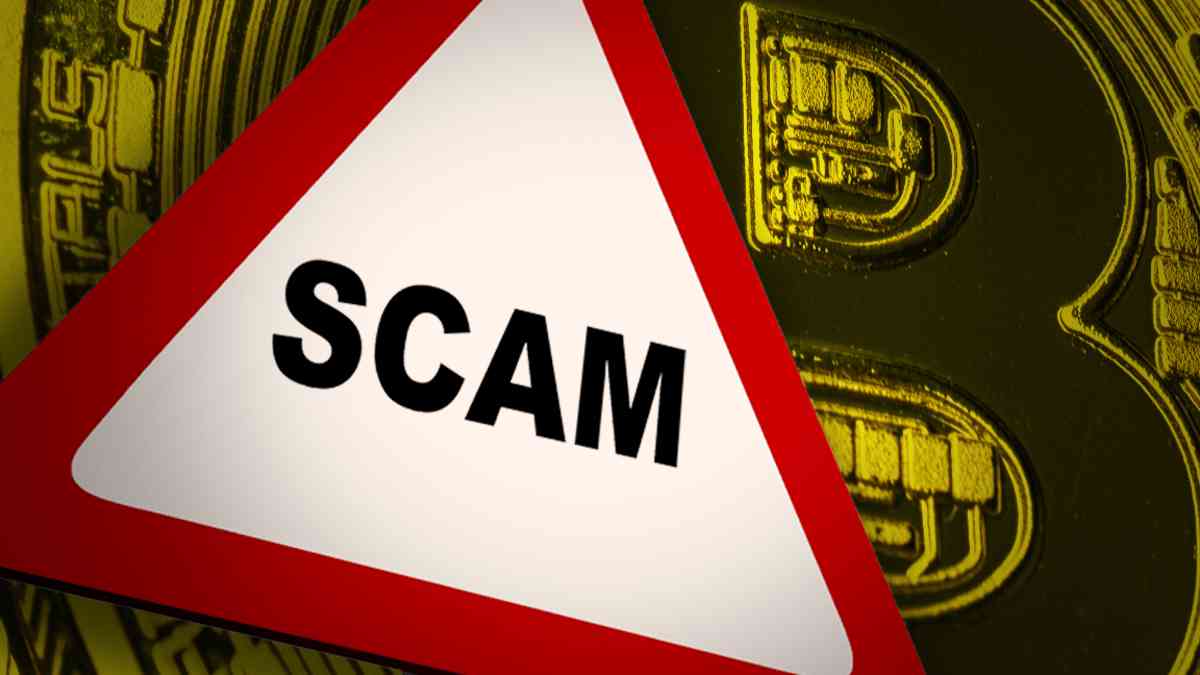Crypto Scam: $15,000 Lost in A Romance Scam
Abstract:PJ, a 57-year-old retired cop from outside Atlantic city, recently lost $15,000 in cryptocurrency in a months-long scam, reports the Washington Post.
PJ Jenkins learned this the hard way.

PJ, a 57-year-old retired cop from outside Atlantic city, recently lost $15,000 in cryptocurrency in a months-long scam, reports the Washington Post.
The money is on a blockchain so he can see it, but can't use it.
“It’s right there; everyone can see it. But I can’t touch it,” PJ told the Washington Post.
The scam didn't happen quickly.
PJ was swindled over an elaborate, months-long con by a woman named "Alice" he met last September on the dating app Hinge.
The two began chatting on WhatsApp after matching, and spent weeks getting to know each other until after about a month, Alice brought up crypto investments.
She specifically mentioned something called liquidity mining where the crypto holders could lend assets to others.
Alice described how the process worked by detailing how the profits on a low-cost "mining certificate" could have huge returns.
She recommended that PJ use the Coinbase Wallet, an app made by a giant in US crypto trading exchanges.
About a month after chatting, Alice was able to get a skeptical PJ to purchase around $4,000 in a stablecoin called Tether.
PJ then took that money and invested it into a liquidity mining website that Alice had suggested.
He slowly began adding money until he reached $15,000.
After about a month, PJ was able to check his profits online and saw that he was in fact earning money - or so he thought.
PJ told the Washington Post that the profits he saw online weren't real, neither was the "mining certificate" that Alice told him about.
It was all an elaborate scam to get him to click on something that gave her access to all of his cash.
PJ contacted Coinbase and Tether to report her but they both told him there was nothing they could do because he had essentially signed over his money to Alice.
The Sun reached out to Coinbase and Tether for comment.
“Security is my forte,” Jenkins told the Washington Post. “If it can happen to me, I feel like it can happen to anybody.”
What is cryptocurrency?
Cryptocurrency is decentralized digital money based on blockchain technology.
A blockchain is a system of recording information openly.
It's essentially a ledger that records transactions in code, making it difficult or often impossible to change, hack or cheat the system.
Some of the more familiar versions of cryptocurrency are Bitcoin and Ethereum, but there are over 5,000 different cryptocurrencies in circulation.
The reason why people like cryptocurrency is the same reason many get scammed - no central authority.
The Federal Reserve manages and controls the supply of the US Dollar.
But cryptocurrency isn't managed by any government. Instead, the funds are distributed among cryptocurrency’s users via the internet.
Some online retailers like Overstock.com accept cryptocurrency as payment but it has yet to be mainstream.
If you're keen to invest, keep in mind that you're not guaranteed to make money and you may lose all the cash you put in.
Because of this, it's important to never invest more than you can afford to lose or into anything you don't understand.
How to avoid getting scammed
As cryptocurrency remains a mystery to many, it can be profitable.
But it doesn't come without risks, below we explain how to avoid getting scammed.
- Do your research
Don't take the internet's advice at face value.
If something sounds too good to be true, it most likely is.
Some things to consider when possibly investing: how and what did you hear about the company? And is your source reliable and trusted?
Some universal advice - unless you're a miner or a serious investor, don't buy cryptocurrency outside of a proper cryptocurrency exchange.
- Be skeptical
Those who contact you directly asking for payments in cryptocurrency or explaining potential investment opportunities should be handled with extreme caution.
Don't trust emails even if they seem to be from government officials or public figures as they could be a scam.
Do not trust anyone who asks you to pay for anything using cryptocurrency.
- Secure your wallet
If you own cryptocurrencies, never share your private key or seed phrase with anyone.
You should always use multi-factor authentication on your crypto wallet.
It may not be the solution, as many still get hacked, but that simple, extra step may save you.
Article Source: the-sun.com
Images used in this article are all from the Internet for non-commercial use. If there’s any image involved in infringement, please let us know and we will remove it.
Investing in cryptocurrencies is highly risky and speculative, and this article is not a recommendation by BitChecker or the writer to invest in cryptocurrencies or whatever. Since each individual's situation is unique, a qualified professional should always be consulted before making any financial decisions. BitChecker makes no representations or warranties as to the accuracy or timeliness of the information contained herein.
Disclaimer: As a blockchain info platform, the info provided hereby does not represent any investment suggestions and hints, and this platform does not guarantee the accuracy, completeness and timeliness of the articles.


11/3/2022


4/3/2022
